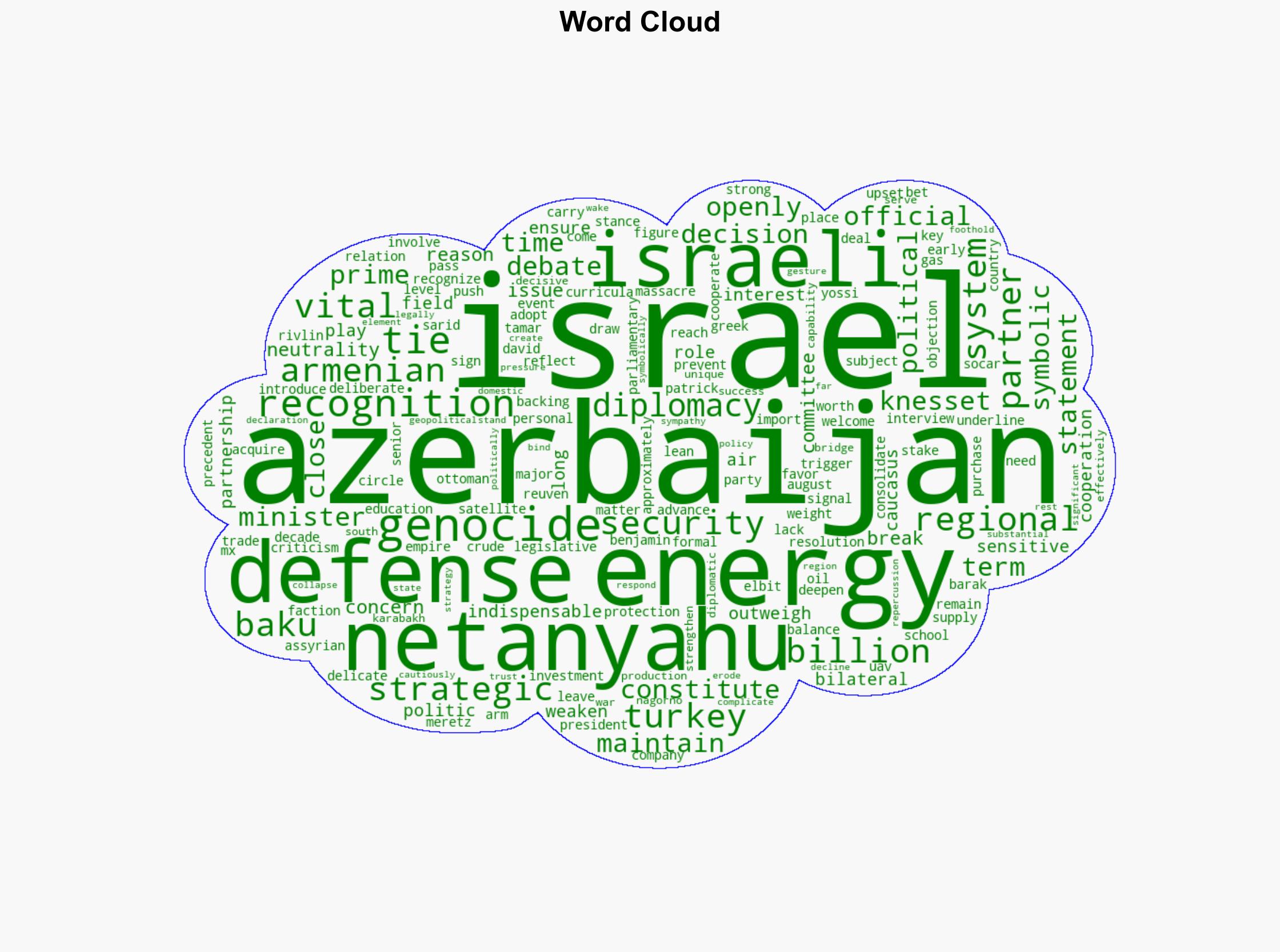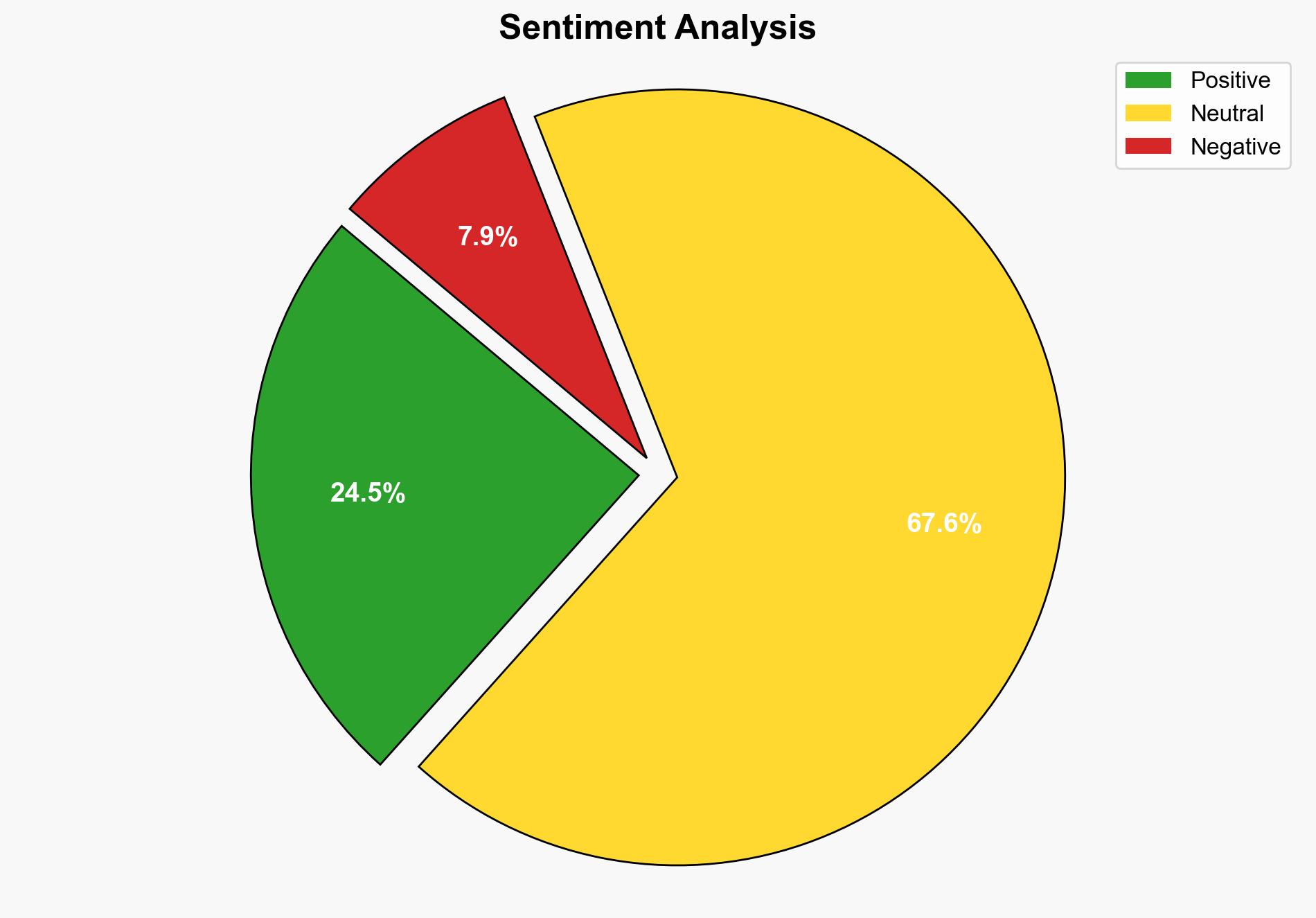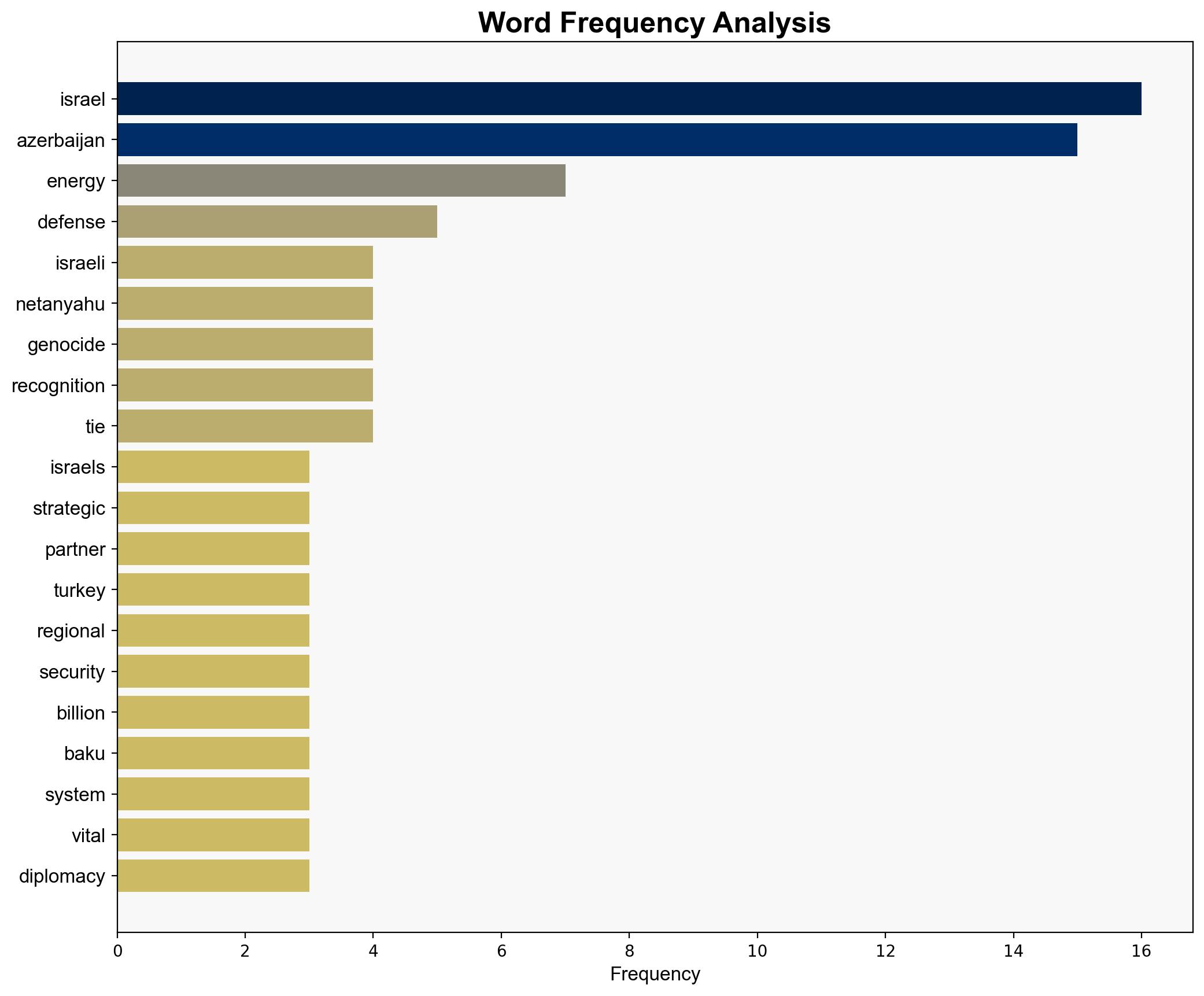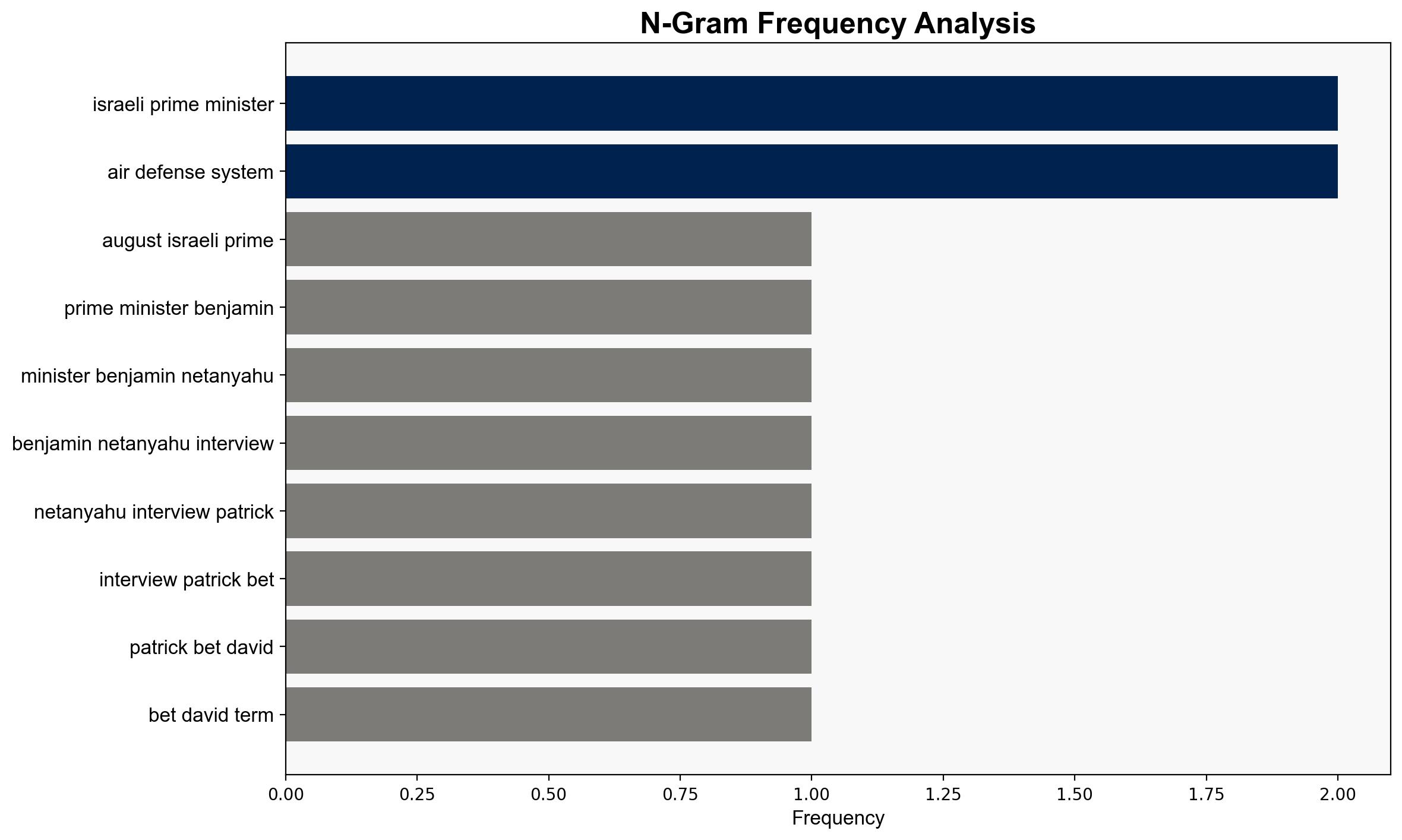Geopolitical aspecs of Netanyahu’s recognizing Armenian genocide – Israelnationalnews.com
Published on: 2025-09-06
Intelligence Report: Geopolitical Aspects of Netanyahu’s Recognizing Armenian Genocide – Israelnationalnews.com
1. BLUF (Bottom Line Up Front)
The strategic judgment is that Netanyahu’s recognition of the Armenian genocide, while not legally binding, could destabilize Israel’s strategic relationships with Azerbaijan and Turkey. The most supported hypothesis suggests this move may be a personal stance rather than a shift in state policy, given the lack of formal legislative backing. Confidence level: Moderate. Recommended action: Israel should engage in diplomatic efforts to reassure Azerbaijan and Turkey of its continued strategic partnerships.
2. Competing Hypotheses
1. **Hypothesis A**: Netanyahu’s statement is a personal stance, not indicative of a shift in Israeli state policy. This hypothesis is supported by the lack of formal legislative backing and the historical precedent of Israeli neutrality on the issue.
2. **Hypothesis B**: Netanyahu’s statement signals a potential shift in Israeli policy towards recognizing the Armenian genocide, possibly influenced by internal political pressures or changing geopolitical calculations. This hypothesis considers the symbolic weight of the statement and potential domestic political gains.
Using ACH 2.0, Hypothesis A is better supported due to the absence of legislative action and the historical context of Israel’s strategic neutrality.
3. Key Assumptions and Red Flags
– **Assumptions**: It is assumed that Netanyahu’s statement does not reflect a broader policy change. Another assumption is that Azerbaijan and Turkey will prioritize strategic interests over emotional reactions.
– **Red Flags**: The lack of formal legislative backing could be a red flag indicating limited policy change. There is also a potential blind spot in underestimating Azerbaijan’s emotional and historical sensitivities.
4. Implications and Strategic Risks
– **Geopolitical Risks**: The statement could strain Israel’s relations with Azerbaijan and Turkey, potentially affecting energy security and defense cooperation.
– **Economic Risks**: Disruption in energy supplies from Azerbaijan could impact Israel’s energy security.
– **Escalation Scenarios**: Azerbaijan might reconsider its defense contracts with Israel, or Turkey could leverage diplomatic channels to express discontent, affecting regional stability.
5. Recommendations and Outlook
- Engage in diplomatic dialogue with Azerbaijan and Turkey to reaffirm strategic partnerships.
- Monitor domestic political developments that could influence foreign policy shifts.
- Scenario Projections:
- Best Case: Relations with Azerbaijan and Turkey remain stable, with continued strategic cooperation.
- Worst Case: Diplomatic fallout leads to reduced cooperation in energy and defense sectors.
- Most Likely: Short-term diplomatic tensions with eventual stabilization through diplomatic efforts.
6. Key Individuals and Entities
– Benjamin Netanyahu
– Yossi Sarid
– Reuven Rivlin
– Rachel Avraham
– SOCAR (State Oil Company of Azerbaijan Republic)
– Elbit Systems
7. Thematic Tags
national security threats, regional focus, geopolitical strategy, energy security, diplomatic relations




